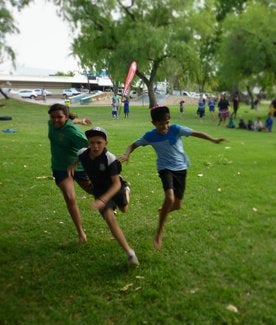

Displaying 491 - 500 of 653
This article responds to "Family foster care: Can it survive the evidence?," an article published in 2014 in Children Australia suggesting that foster care either doesn't change the likelihood of positive outcomes for children, or makes it more difficult for positive outcomes to be achieved.
This report presents the findings of an investigation on a cohort of highly vulnerable teens (aged 10-17 years) whose needs for care have fallen outside families, between government agencies and between non-government services. The report identifies the gaps in care received by this cohort and offers key recommendations for how these gaps might be filled.
Australians advocate to categorize orphanage tourism as a form of modern slavery - it could become a criminal offence for someone to facilitate trips for Australians to visit orphanages overseas.
This alert from Amnesty International describes the findings from a recent Independent review of youth detention centres in Queensland, Australia, which exposed abuse and human rights violations of detained youth at the hands of staff.
This independent review into Queensland's youth detention centres examined the practices, operation and oversight of the state's two youth detention centres in Townsville and Brisbane, in addition to evaluating the effectiveness of programs and services delivered in Queensland's youth detention centres.
The Guardian reports on the failures of a 10-year Northern Territory (Australia) intervention to address indigenous inequality for aboriginal children within the care system.
New research on adolescents in disadvantaged neighborhoods in Melbourne, Australia suggests positive parenting practices can reduce the impact of stress on the brain for some children.
This paper reports the findings from an Australian study that examined longitudinal data on reasons for entry to care, trajectories in care and patterns of reunification and associated factors.
This paper reports the findings of an Australian study that examined longitudinal data on reasons for entry to care, trajectories in care and patterns of reunification and associated factors.
Department of Health and Human Services secret report reveals that vulnerable children are being exposed to more risk in kinship care placements in Victoria, due to lack of assessments or monitoring of kinship placements by child protection workers.

